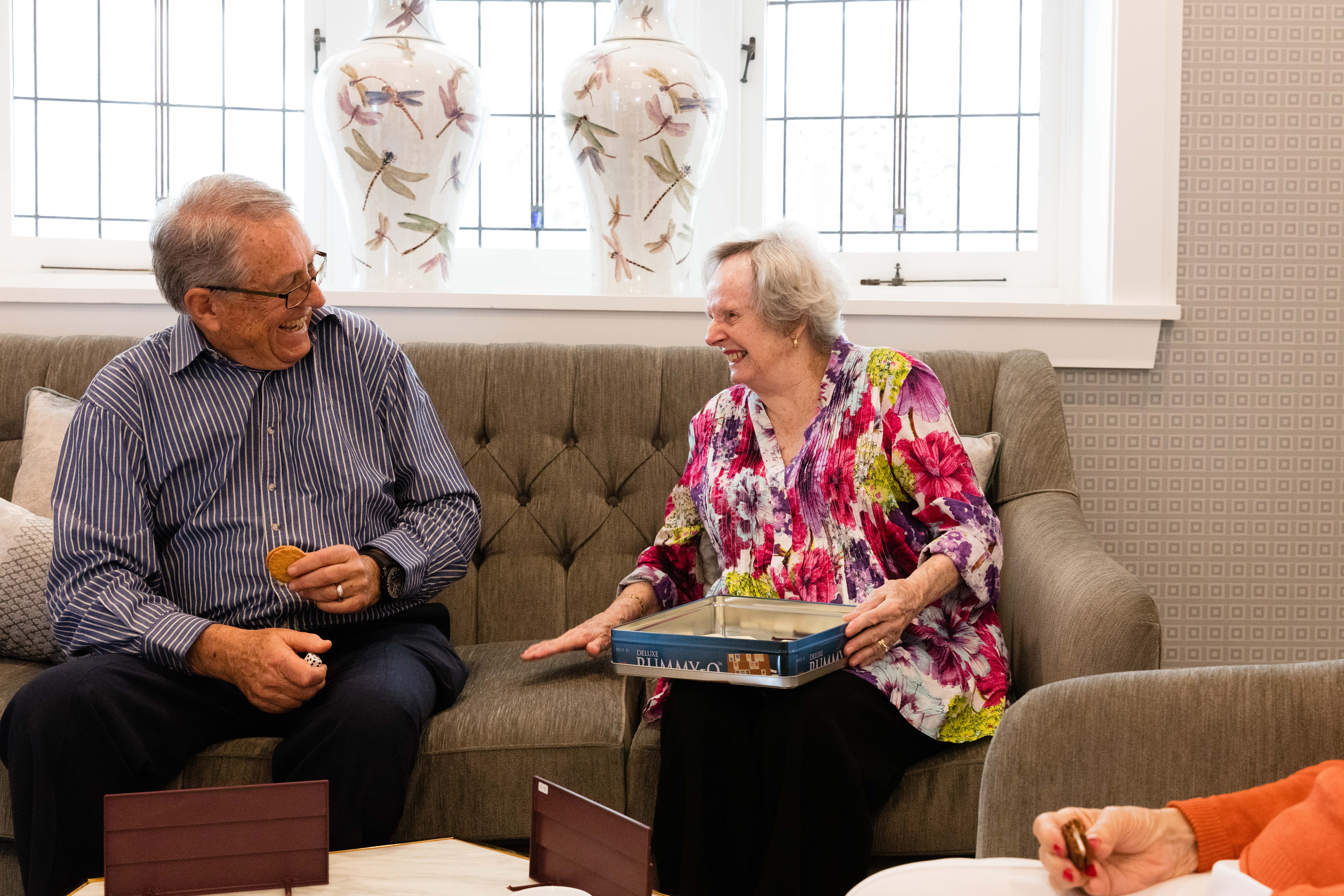Dementia is not a normal part of ageing. We all have different types of brains, what we would call neurodiversity. We will all age differently and so do our brains. There is no one right way to age.
There are a few key differences between an ageing brain and dementia:
Learning new skills
The first thing to change in an ageing brain is the ability to learn new skills. In an ageing brain, a person can still learn new skills but it will take longer than it would have previously. For someone living with dementia, it’s not always possible to learn a new skill. The time to learn this skill will be longer than in the past and will require much more repetition.
Vision
With ageing may come changes to vision, with diminished eyesight or cataracts, whereas for someone living with dementia, it becomes harder to process and understand what they are seeing, rather than not being able to see it. For example, when looking at utensils like a knife and fork, someone living with dementia will be able to see it in front of them, but may not be able to identify what it is used for.
Language
Language changes are very different for someone living with dementia and ageing. For someone with an ageing brain, there may be a pause to remember a word in a sentence, but the words will eventually come to them or they will find a substitute word. For someone living with dementia, the word may never come to them or they may need to be prompted to remember.
Orientation
Getting confused about day or time, and forgetting why you might have walked into a room is completely normal, often we will remember over time. However, for someone living with dementia, they may lose track of time and day which may cause confusion, and they may even begin to feel unfamiliar with their surroundings. The orientation of time and place may never come back.
There are many misconceptions about brain changes and ageing. It’s important to be able to distinguish between an ageing brain and a person living with dementia to understand how we can adapt to interact.
Is it time to consider permanent care?
There is never a right or wrong answer to this question. Our “Question and Answers” are for people living with dementia and for the loved ones supporting them as they consider permanent care, residential aged care, home and community care or a nursing home. Please connect and share your details and take our Q&A to help you decide what to do next.
If we can assist with answering any further questions, please don’t hesitate to contact our Engagement Manager for support on (1300) Show Number
Dance to your own rhythm: Every person living with dementia will do it differently. It’s like a dance.
We understand when a loved one receives a diagnosis, it doesn’t just affect them. There is a huge impact on their support network. We have created a new resource which includes helpful advice for care partners.






0 Comments